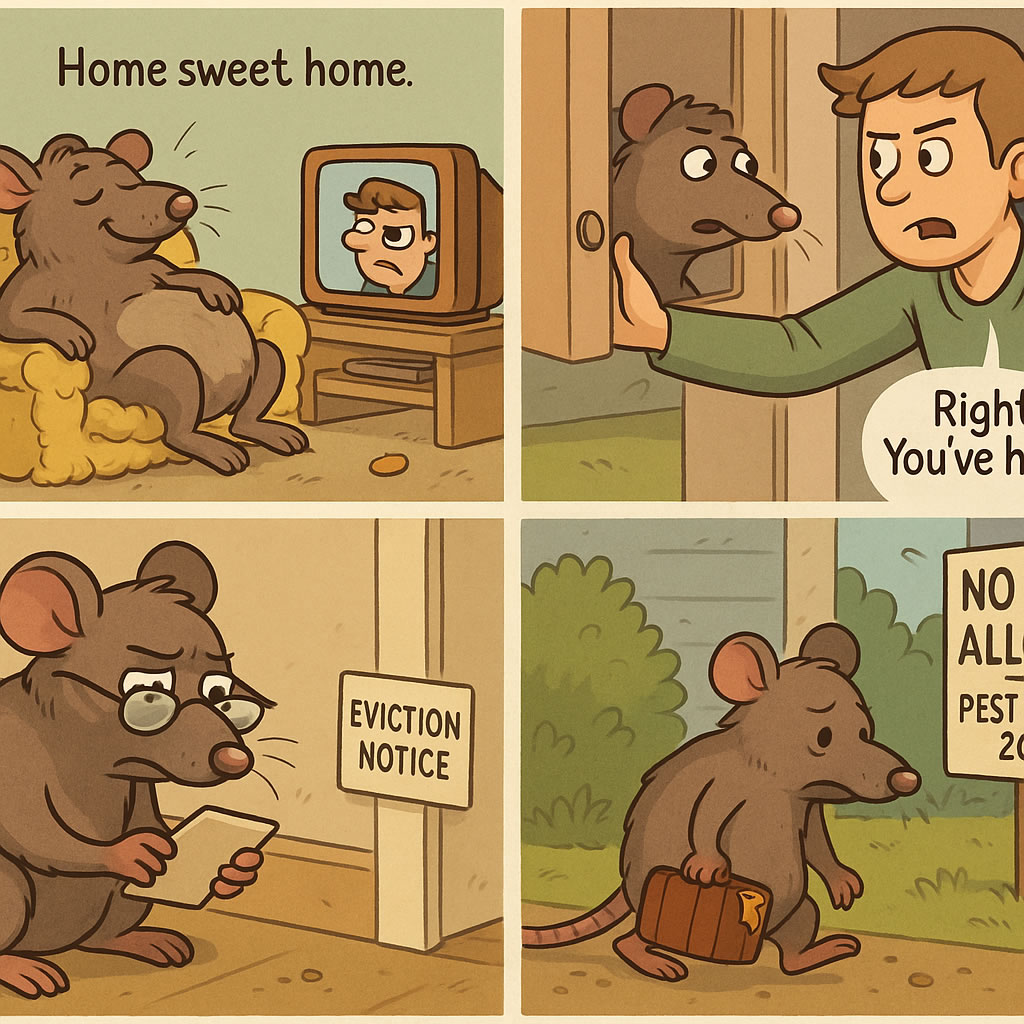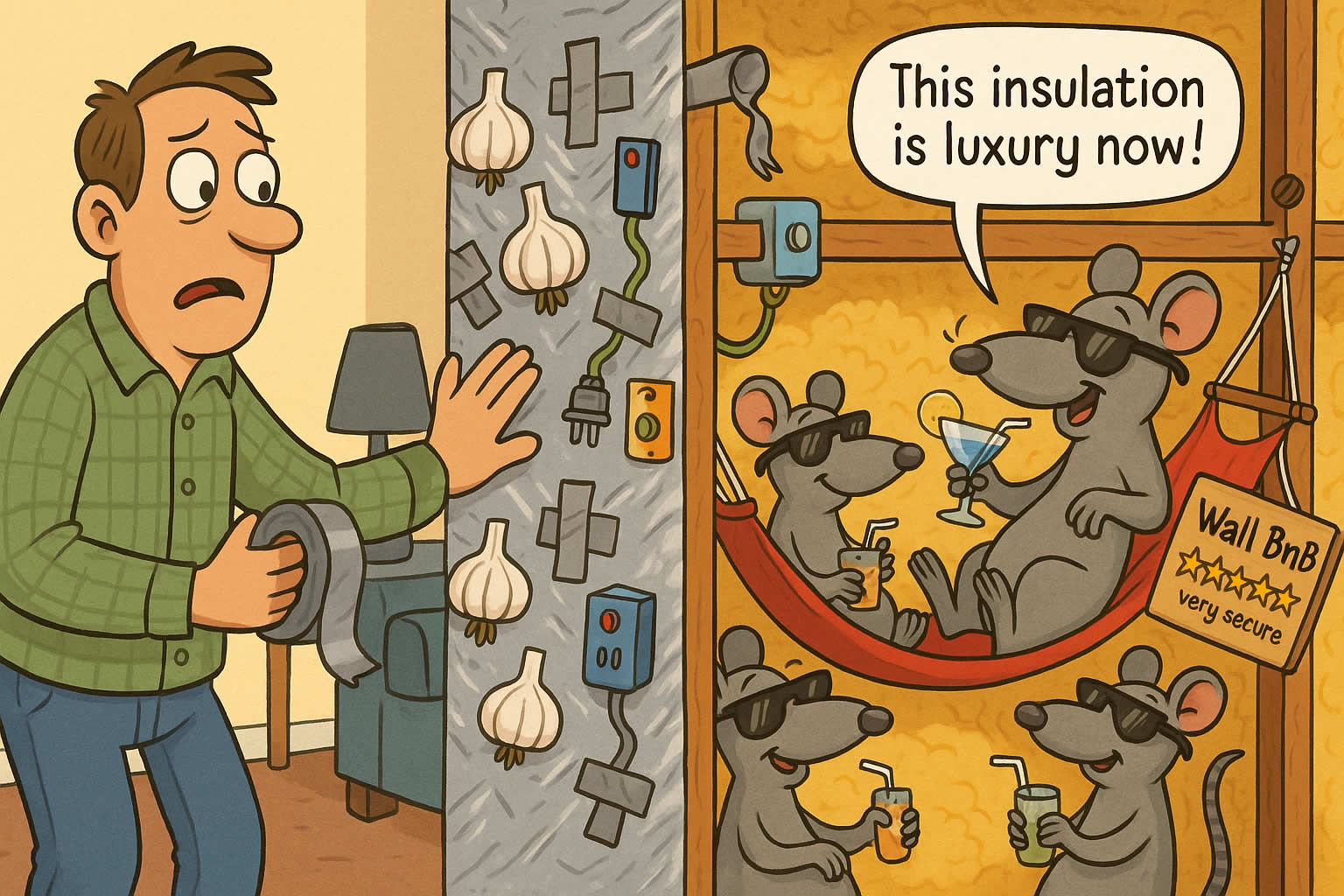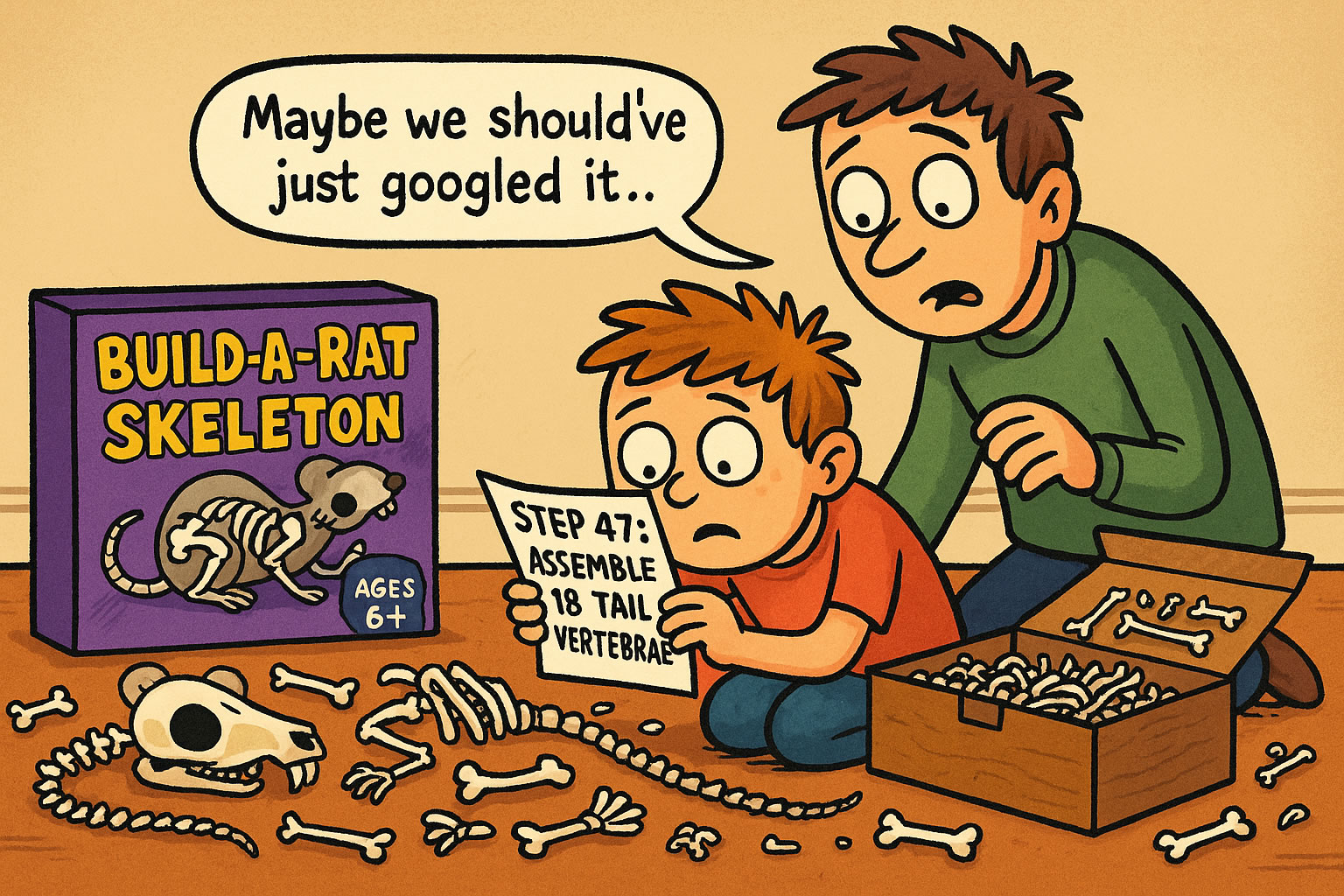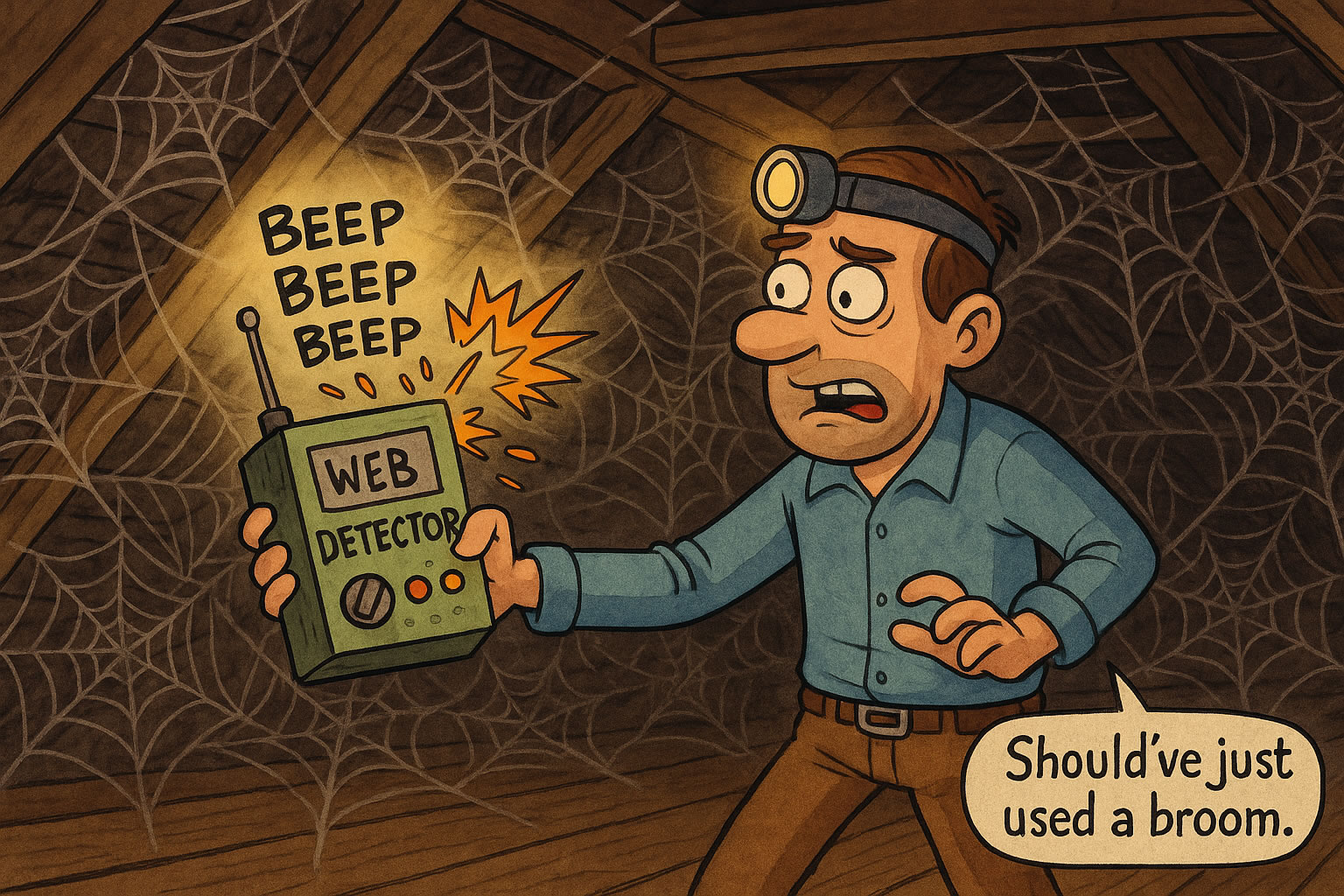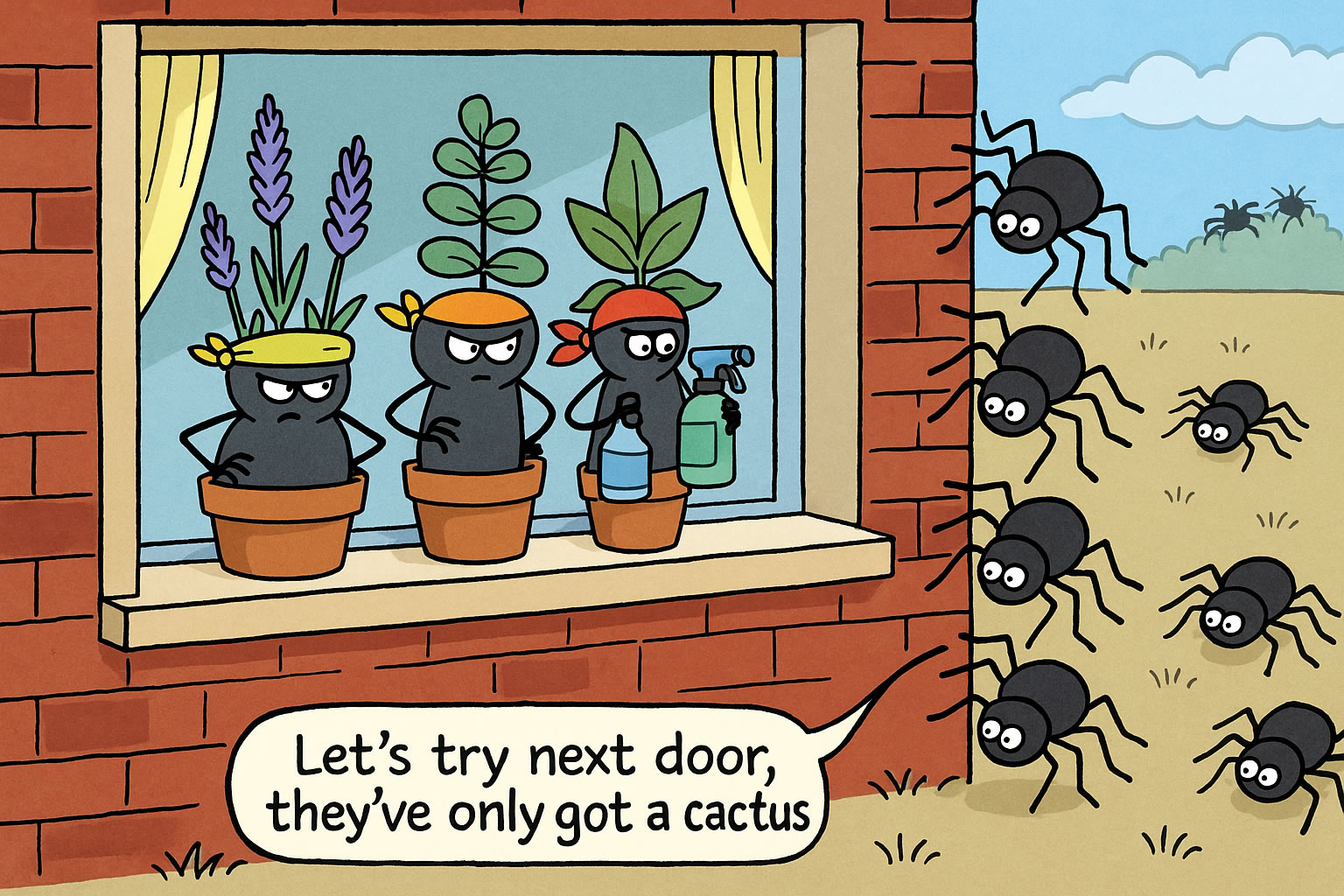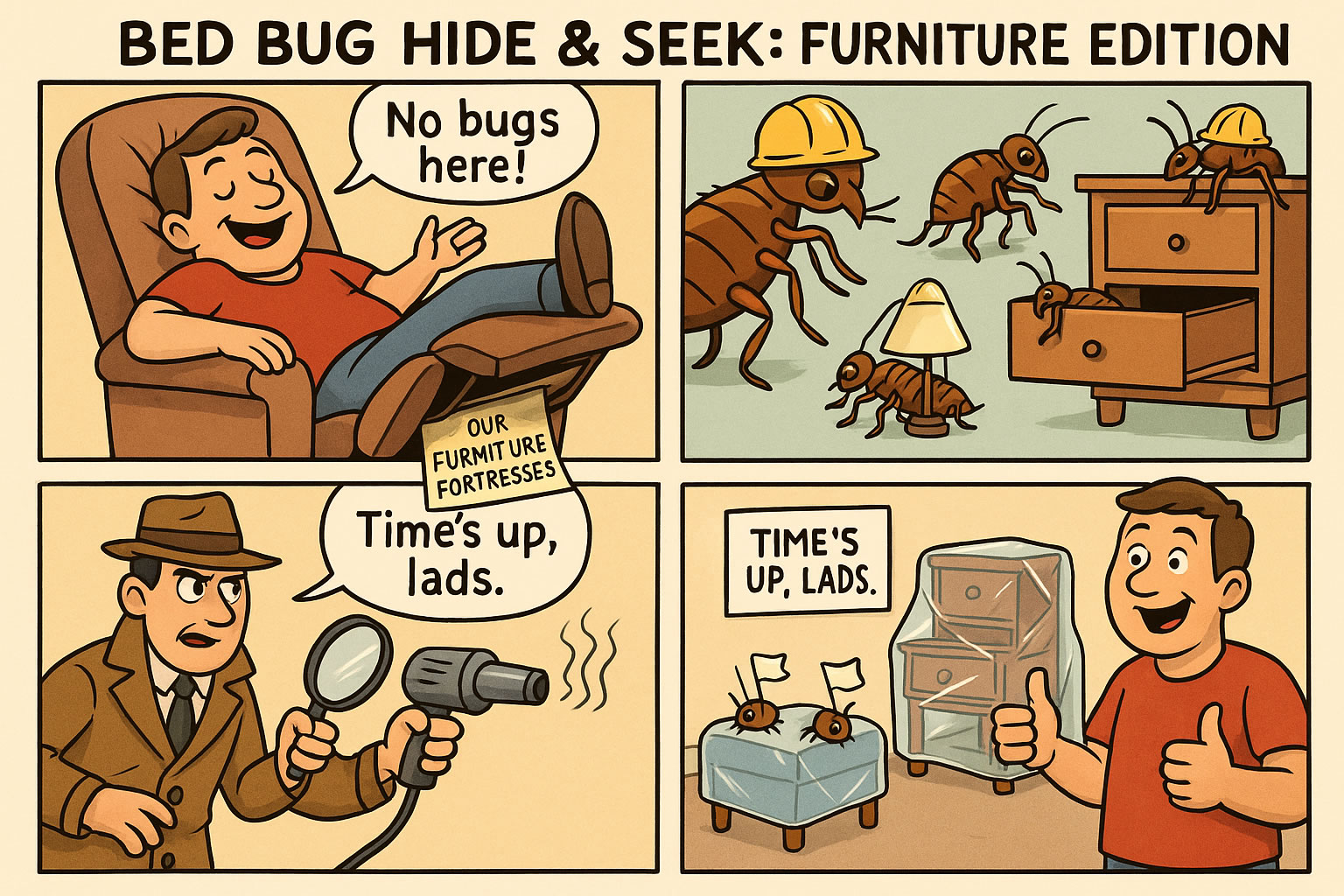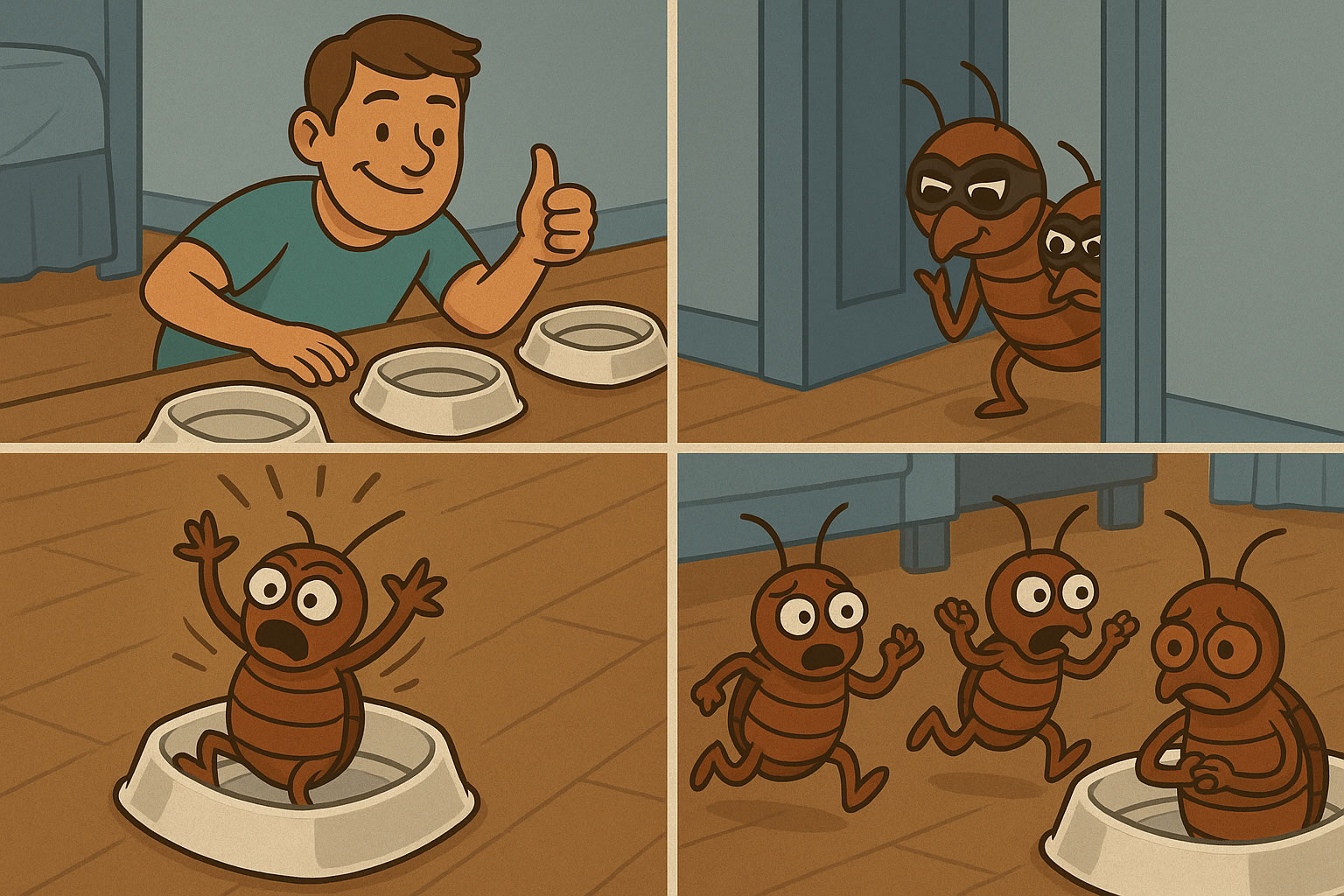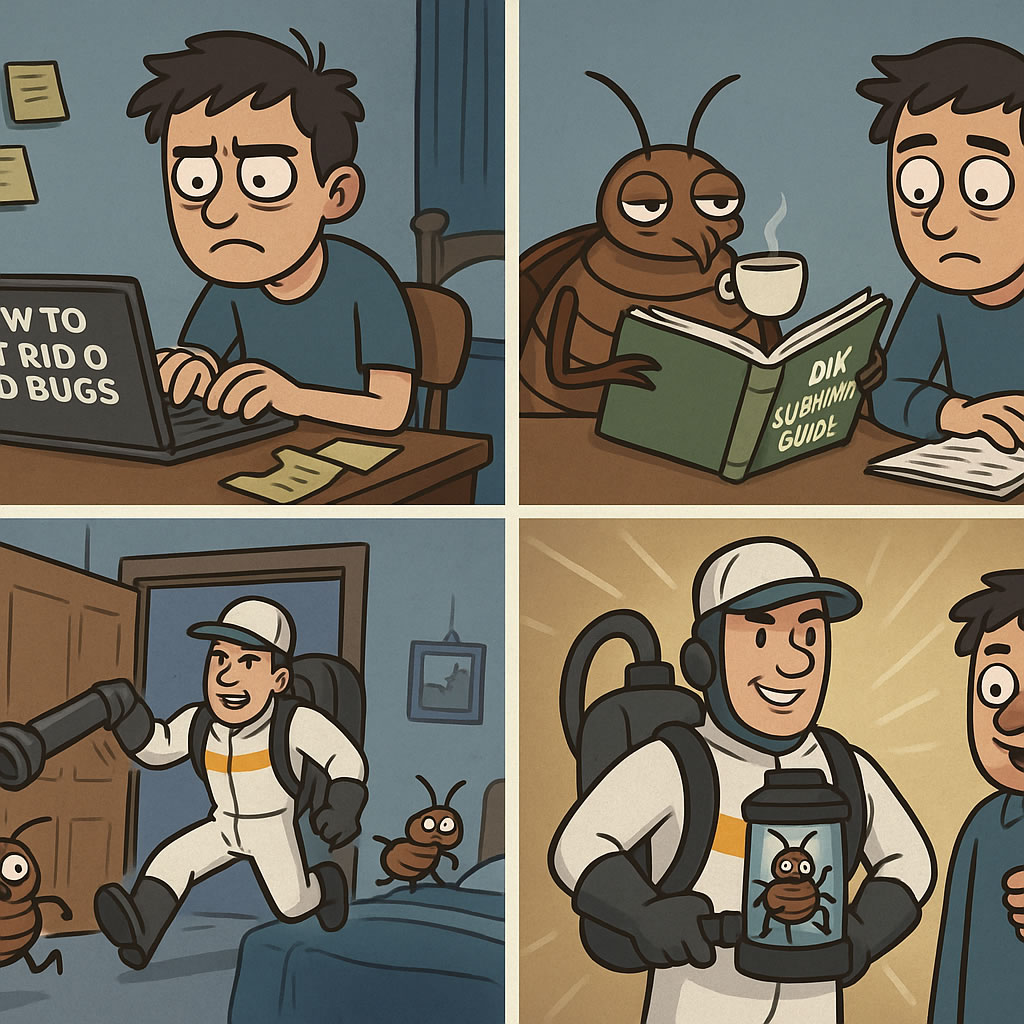Related Queries
ToggleIf you’ve started to notice scratching sounds in the walls or small droppings in cupboards, there’s a strong chance you’ve got rats in your home. It’s never a pleasant discovery, and once they’ve settled in, they can be difficult to get rid of. But you don’t have to panic. With the right approach, you can remove rats from your home safely and stop them from coming back.
This guide takes you through everything you need to do—step by step—to get rid of rats in your house. It’s written in plain, everyday language and focuses on clear, useful actions you can take now. Whether you’re dealing with a current infestation or trying to stop one from happening, this will help you feel more in control.
How do you know if you have rats in the house?
You might not see them straight away, but rats usually leave a trail of signs that are hard to miss once you know what to look for. You’ll want to pay attention to things like:
- Scratching or scuffling noises in walls, ceilings, or under floors—especially at night
- Small, dark droppings roughly the size of a grain of rice
- Gnaw marks on wood, plastic, wires, or food packaging
- Greasy smudge marks along skirting boards or wall edges
- Unusual smells, like a musky or ammonia-like odour that doesn’t go away
- Nests made of shredded paper, insulation, or fabric in hidden places
Spotting two or more of these signs usually means there’s rat activity in your home. If so, it’s time to act quickly.
Why is it important to deal with rats quickly?
Rats don’t just cause mess—they pose serious health and safety risks. The longer they’re left alone, the worse the problem gets. Here’s why acting fast matters:
- Health risks: Rats can spread diseases like leptospirosis, salmonella, and hantavirus through their urine and droppings.
- Structural damage: They gnaw on wires, pipes, wood, and insulation—often leading to electrical faults or leaks.
- Fire hazard: Chewed wires behind walls or under floorboards can cause electrical fires.
- Rapid breeding: Rats reproduce quickly. One pair can lead to dozens in just a few months.
You’re not just dealing with a nuisance. You’re dealing with a threat to your home and health. That’s why every step you take now can make a big difference later.
What attracts rats into the house?
Rats don’t enter homes at random. They’re driven by the need for three things: food, water, and shelter. Once they find easy access to any of those, they tend to stay. The most common attractants include:
- Open bins or food waste
- Pet food left out overnight
- Bird feeders too close to the house
- Gaps or holes in walls, floors, vents, or rooflines
- Cluttered, undisturbed areas like lofts, garages, or under decking
Your goal is to remove their reasons to stay. Once they can’t feed or nest easily, they’ll look elsewhere.
What’s the best way to get rid of rats in your house?
To get rid of rats effectively, you need to approach it in three stages: identify, eliminate, and prevent. Each stage plays a role. Miss one, and they’ll likely return.
Here’s a breakdown of how that works.
Find out where they’re coming from
Before you lay traps or clean anything, you need to figure out where the rats are getting in and where they’re going. Most rats in UK homes enter through:
- Gaps around pipes or drains
- Broken air bricks or vents
- Gaps under doors or garage doors
- Roofline openings, eaves, or loose tiles
Check all around the outside of your home, as well as in lofts, basements, and under floorboards if you can. Look for gnaw marks, droppings, rub marks, and signs of shredded nesting material.
Block access points
Once you’ve found where they’re entering, seal it up. Rats can squeeze through holes as small as 15mm, so don’t underestimate what they can use. For this step, use:
- Galvanised mesh or steel wool for vents and holes
- Sealant and filler for cracks around pipes or bricks
- Bristle strips or door sweeps under external doors
- Cement or mortar for structural gaps
Be thorough. Even a missed gap the size of a coin can lead to a new entry point.
Remove food and nesting materials
Rats stay where there’s food. So your next move is to cut off their supply. Make sure you:
- Store food in sealed containers, not open packets
- Keep floors and worktops free from crumbs
- Put bins outside and close them with tight lids
- Clear pet food dishes before bedtime
- Avoid composting cooked food scraps near your home
Also, declutter spaces like lofts, sheds, and under cupboards. If they don’t find nesting spots, they won’t settle in.
Choose your method to remove them
Now that you’ve blocked entries and removed temptations, it’s time to deal with the rats that are already inside.
Comparison of Rat Removal Methods
| Method | Effectiveness | Safety | Speed | Best For |
| Snap traps | High | Moderate | Fast | Small infestations |
| Live capture traps | Medium | High | Slower | Homes with pets or kids |
| Rat poison (bait) | High | Low indoors | Medium | Outbuildings and secure areas only |
| Electronic traps | High | High | Fast | Urban homes or regular use |
| Professional service | Very High | Very High | Fast | Severe or hard-to-reach infestations |
Each method has pros and cons. If you’ve got pets or children, steer clear of poison. If rats are nesting in walls or roof spaces, electronic or professional solutions work best.
Clean and disinfect the area
Once you’ve dealt with the rats, clean-up is just as important. Rat droppings and urine can carry harmful bacteria. So when you clean:
- Wear gloves and a mask
- Ventilate the area before starting
- Spray droppings with disinfectant before removal—never sweep or vacuum dry
- Use a strong disinfectant to wipe down surfaces, floors, and nesting areas
If the smell remains, you can use odour-neutralising products like activated charcoal or enzymatic sprays to remove lingering traces.
Can you get rid of rats without using poison?
Yes, you absolutely can. Poison is fast, but it’s not always safe or reliable—especially indoors. Dead rats can die in walls or hidden spaces, causing secondary problems with odours or flies.
Non-toxic methods are often better in homes. They include:
- Snap traps
- Electronic traps
- Sealing entry points
- Removing food and shelter
- Using ultrasonic pest repellers as an added deterrent
If you combine these methods properly, you can get rid of rats safely and effectively without relying on poison.
What should you do if rats keep coming back?
If rats return even after you’ve sealed gaps and set traps, there’s usually one of two reasons:
- You’ve missed an entry point. Go back and check places like under decking, drain covers, air bricks, and wall cavities.
- There’s still food or shelter attracting them. Rats don’t stay without a reason. Keep your garden tidy, reduce clutter, and store food securely.
If the problem keeps going, it’s worth contacting a professional pest control service. They have tools and experience to track down entry routes, nest sites, and activity you may have missed.
Final thoughts: You can take control now
Rats in the house can feel overwhelming, especially when you hear them at night or find sudden signs. But you’re not powerless. With the right approach, you can clear them out and stop them coming back.
Focus on what you can control. Block their routes. Cut off their food. Use traps wisely. And clean thoroughly. If you do that in the right order, you’ll break their cycle and take back your home.
Don’t wait for the problem to get worse. The sooner you start, the easier it is to solve—and the safer and cleaner your home becomes.
Pest Control Gravenhurst – Pest Control Meppershall – Pest Control Eastcotts

